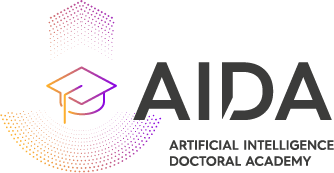-
Hackathon weekend, first day
Saturday, September 3, 202209:00 UTC
● Welcome and FAQ
Opening of the hackathon weekend with information and the possibility to ask questions. The tasks and mentors are introduced.
-
10:00 UTC
● Hacking & Mentoring sessions
Participants work on their task and interact with the mentors.
-
18:00 UTC
● End of the first day
Quick gathering for the official end of the first day. Informal chatting among the participants; grab a beer! Of course, participants may continue to work on their tasks over the night.
About the MICCAI Hackathon
MICCAI has encountered tremendous growth over the last years regarding the size of the community, and the success and number of methods. Despite this growth, MICCAI ideas rarely find their way to the clinics. The cycle of the ideas and methods often ends with the publication at the conference, as also discussed at the RSNA-MICCAI panel at MICCAI 2020. To not lose sight of the ultimate goal, which is the improvement of healthcare, we think it is worthwhile discussing how to bridge this gap to the clinics as a community. To this end, we organize the third edition of the MICCAI Hackathon in a two-stage format consisting of a virtual hackathon weekend on September 3/4, 2022, and a social event with keynotes on September 18, 2022 at the satellite events of the MICCAI 2022 conference.
The aim of the MICCAI Hackathon is to raise awareness to the translational challenges in the MICCAI community. The event should be seen as discussion-driven rather than solution-driven; let's discuss how we could approach these challenges. Therefore, the outcome of the hackathon is difficult to estimate. Ideally, the MICCAI Hackathon raises the awareness that we, as a community, should collaborate and listen to the medical stakeholders. Yet, it is expected that some contributions are at the level of a usable draft (e.g., a document, guidelines, a piece of software). The contributions are free to use (open source) and participants might decide to follow up on their ideas. From the personal perspective of participants, a likely outcome is that they get to know new people, can network, and future collaborations could be formed.
The MICCAI Hackathon adheres to the typical format of a hackathon: participants gather together, work in teams or individually to find solutions to specific tasks, while being supervised by mentors, and finally present their contributions at the end of the hackathon. We are convinced that the format of a hackathon is an opportunity for the MICCAI community to exchange, discuss, reflect, and possibly come up with ideas and suggestions on how our community could bridge the gap to the clinics and move MICCAI methods towards clinical application. Have a look at the program and the detailed information.

Tasks
The topic of the MICCAI Hackathon involves “How can we bridge the gap to the clinics and move MICCAI methods towards clinical application?” During the hackathon weekend, participants will work on tasks related to this topic. The tasks will be announced shortly, come back soon!
Task 1 - Domain shifts between clinical annotators
Medical imaging datasets are known to be highly heterogeneous, being often collected at multiple institutions and resulting in so-called domain-shifts between institutions. At the level of manual segmentations, annotators trained in one institution may follow slightly different annotation procedures, e.g. over- and under-segmenting, and this may bias the learning process. In this task, you investigate the domain shifts in white matter (WM) lesion segmentation.
- Discuss, identify and quantify the impact of multiple sources of shift within the multiple sclerosis dataset of WM lesions in Shifts 2.0 publicly available dataset.
- Quantify the impact of multiple annotators as opposed to a single annotator in terms of model uncertainty. How does model uncertainty vary against the number of annotations considered to create the “golden reference”? Does the uncertainty decrease if more annotators are used?
- How many annotators in the given dataset over-segment the “golden reference”? How many undersegment? What is the observed bias introduced by each of the annotators?
Task 2 - Unsupervised target structure localization
Researchers often face limited or no training data when translating medical image computing methods to a new clinical application. In this task, you aim at localizing target structures in head CT to facilitate manual annotation and provide a region of interest for existing methods working on regions of interest.
- Propose an approach that can automatically localize the target structures in head CT by only having 1 case with manual annotation plus 10 unannotated cases.
- Is the use of pre-trained models feasible? Are traditional approaches outperforming DL-based techniques? Can one benefit from the anatomical dependence among the structures?
Task 3 - Integrated diagnostics
Images are not the only sources of information available to physicians when treating patients. Similarly, in the domain of medical AI, “integrated diagnostics” hypothesizes that combining complementary diagnostic data might yield more robust/better performing predictive models is termed. In this task, you investigate integrated diagnostics.
- Discuss and summarise potential pitfalls in simple integration strategies like logits averaging, or feature vector concatenation.
- Discuss the potential of more sophisticated methods to address this problem and develop a proof-of-concept for mapping different sources of heterogeneous data to a patient outcome.
- Motivate your proposed solution in case of i) missing data (e.g., the results of one of the diagnostic exams is missing) and ii) longitudinal data (e.g., some of the diagnostic exams are repeated over time to check if the treatment is working).
Task 4 - Associations between clinical semantics and deep features
The comprehension of the way deep learning models achieve certain performances remains a barrier to applying this powerful tool in the clinical environment. In this task, you perform an associative analysis of features extracted by pre-trained neural networks and semantic features annotated by clinicians in CT lung nodules, aiming to infer possible relationships linking these feature spaces.
- Identify possible ways to search within the unstructured (deep) feature space to find relationships.
- Propose different feature analysis methods for dependencies evaluation.
- Investigate how sensitive are the results considering different architecture choices.
- Discuss the results, showing if there are semantic features more expressively "found", and what could explain that.
Task 5 - Time-series quality control of medical device manufacturing
Plastic injection molding is a technology for manufacturing single-use medical devices. Generally, statistical process control is solely used after every manufacturing batch to guarantee product quality. However, a continuous control during a manufacturing batch is desired to reduce potential scrap. In this task, you aim at building a mapping between a time-series of manufacturing parameters and product quality.
- Analyze sources of variance (e.g., properties of plastic granules) that have a direct or indirect influence on the product quality and assess.
- Develop a proof-of-concept for mapping manufacturing parameters to product quality.
Bonus task - Do It Yourself
Do you have your own task in mind? Then do it yourself (DIY)! Simply work on your own data/problem or use one of our suggested datasets. Team up with others who might be interested in exploring a dataset and some hacking. Note that you will not have dedicated mentors for support available.
You could work on one of the datasets freely available at The Cancer Imaging Archive (TCIA). Some TCIA datasets that come with data beyond medical images, and, therefore, might be closer to a clinical setting, can be found in the resources.
Keynote speakers
Two keynote speakers will share their insights on how to bridge the gap to the clinics on at the satellite events of the MICCAI conference.
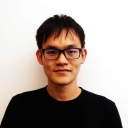
Dr. Po-Hsuan Cameron Chen
Google Health, USA
Title: Evaluation of artificial intelligence on a reference standard based on subjective interpretation
Abstract: Rapid progress has been made in artificial intelligence (AI) models for medical applications, especially over the past 5 years, with substantial efforts focusing on diagnosis from medical images. An essential aspect of evaluating the performance of AI models and their potential clinical utility is the rigor of the reference standard. In this talk, I'll discuss the task of designing a reference standard based on subjective interpretation using examples of machine learning in healthcare research from Google.
Bio: Cameron Chen is a staff software engineer and a tech lead manager of machine learning at Google Research and Google Health. Cameron's primary research interests lie at the intersection of machine learning and healthcare. His research has been published in leading scientific, clinical and machine learning venues, including Nature, JAMA, and NeurIPS, and covered by media outlets such as the New York Times, Forbes, and Engadget. He received his PhD in Electrical Engineering and Neuroscience from Princeton University and his BS in Electrical Engineering from National Taiwan University. Cameron was also a recipient of the Google PhD Fellowship.

Prof. Dr. Wiro Niessen
Biomedical Imaging Group Rotterdam at Erasmus MC, The Netherlands
Title: Challenges and opportunities for (MICC)AI in health: towards precision prevention and precision medicine
Abstract: The combination of big data and artificial intelligence are dramatically increasing the possibilities for prevention, cure and care, and have large potential to change the landscape of the healthcare system. However, the translation from promising research results towards successful and responsible implementation in clinical practice is challenging. In this presentation I will show the opportunities and challenges of big data analytics with (MICC)AI techniques in health. Applications in the field of improved prognosis in dementia and improved diagnosis and prediction and oncology will be shown. Finally, I will address the challenges of how to successfully integrate these technologies in daily clinical workflow. This will require (i) good access to health data, both for the development of accurate and robust algorithms, and for their validation, and (ii) collaboration and co-creation within multidisciplinary teams consisting of academic researchers, clinicians and industry.
Bio: Wiro Niessen is professor in Biomedical Image Analysis and Machine Learning at Erasmus MC and Delft University of Technology, The Netherlands. His interest is in the development, and validation of quantitative biomedical image analysis methods, and linking imaging and genetic data for improved disease diagnosis and prognosis, using machine learning. He supervised 60 PhD students in these fields. He is fellow and was president of the MICCAI Society, and is CTO of Health-RI, which aims to develop a national health data infrastructure for research and innovation. In 2015 he received the Simon Stevin award, the largest prize in the Netherlands in Applied Sciences. In 2017 he was elected to the Royal Netherlands Academy of Arts and Sciences. In 2012 he founded Quantib, an AI company in medical imaging where he currently acts as scientific lead. In 2022 Quantib has become part of the AI division of RadNet.
Mentors
Mentors provide guidance, feedback, and inspiration to the hackathon participants during the virtual hackathon weekend.

Mara Graziani
IBM Research / ZHAW and HES-SO Valais-Wallis
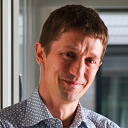
Henning Müller
HES-SO Valais-Wallis
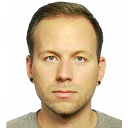
Daniel Erpenbeck
CASCINATION AG
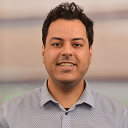
Zuhir Bodalal
Netherlands Cancer Institute
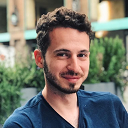
Stefano Trebeschi
Netherlands Cancer Institute
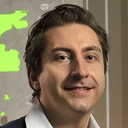
Sean Benson
Netherlands Cancer Institute
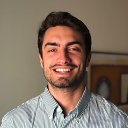
Francisco Silva
University of Porto and INESC TEC
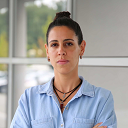
Tania Pereira
INESC TEC
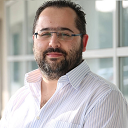
Helder Oliveira
University of Porto and INESC TEC

Elias Rüfenacht
University of Bern
Program
The MICCAI Hackathon happens on two disjoint dates: a virtual hackathon weekend on September 3/4 with a meeting on September 18, 2022 as a satellite event at the MICCAI conference. The following program is preliminary and will be subject to change.
-
Hackathon weekend, second day
Sunday, September 4, 202209:00 UTC
● Gathering and FAQ
Gathering of the participants for the second day. Information on the presentations at the end of the hackathon. Quick discussion on open questions.
-
09:30 UTC
● Hacking & Mentoring sessions
Participants work on their task and interact with the mentors.
-
17:00 UTC
● Presentations of contributions
The participants present their contributions in a short presentation. The presentations are followed by an open discussion.
-
18:00 UTC
● End of the virtual hackathon weekend
The organizers shortly wrap-up the event.
-
Meeting as a satellite event at the MICCAI conference
Sunday, September 18, 202215:40 SGT
● Welcome
Welcome by the organizers.
-
15:50 SGT
● Keynote Po-Hsuan Cameron Chen with Q&A
Keynote by Po-Hsuan Cameron Chen followed by live Q&A (at ~16:35 SGT).
-
16:50 SGT
● Coffee Break
Grab some refreshments before the upcoming presentations.
-
17:00 SGT
● Presentations & Award Ceremony
Presentation of the best contributions followed by the award ceremony.
-
18:00 SGT
● Keynote Wiro Niessen with Q&A
Keynote by Wiro Niessen followed by live Q&A (at ~18:45 SGT).
-
19:00 SGT
● End of the MICCAI Hackathon
Official end of the MICCAI Hackathon. The organizers shortly wrap-up the event.
Details
If something is not covered by the information below, please contact us
Participation
- Who can participate? Everyone. The more diverse the better. So, it does not matter whether you are a clinician, a researcher, an undergraduate student, a postdoc, or a professor.
- What do I do as participant? You will work on a task you choose from a set of tasks during the hackathon weekend. Mentors will provide feedback and guidance to you in dedicated mentoring sessions. You will shortly present your contribution at the end of the MICCAI Hackathon.
- Can I participate individually? Yes, working individually on a task is possible, although you would miss the chance to meet new people.
- Can we participate as a team? Yes. To do so, each member needs to fill in the same team name in the registration form.
Registration
- Why do I need to register for the hackathon? A registration is required to facilitate the communication between the organizers and the participants.
- Is a hackathon registration binding? No, you can unregister until the start of the hackathon weekend on September 3.
- Until when can I register for the hackathon? Registration for the MICCAI Hackathon will be open until the hackathon weekend on the September 3 at 09:30 UTC.
- Can I update my registration? Yes, you can always change your registration such as joining a team. Your registration can be updated through the link in the welcome e-mail. Keep in mind that this might affect other people (e.g., switching a team)!
- Is it mandatory to attend the meeting at the satellite event to participate? No, you can participate at the hackathon weekend without attending the meeting at the satellite event day.
- Does the hackathon weekend imply additional fees? No, the participation in the MICCAI Hackathon is free of charge. However, as the MICCAI Hackathon is an official satellite event at the MICCAI conference, attending the meeting at the half-day satellite event underlies the registration fees of the satellite event day.
Organization
- Can I work on my own task? Yes, as long as it is related to the topic of the hackathon.
- Can I work on multiple tasks? Yes, you can combine the ideas of several tasks to form a new task.
- Can I start working on the task before the hackathon weekend? Sure, as soon as you have your team (or decide to work alone) you can start hacking.
- Can I be matched into a team? No, finding your team is up to you. You can however contact the organizers to put you in contact with existing teams that you might join.
- When will the data be available? All relevant material, including a recording of the session, will be made publicly available a week before the hackathon weekend.
- Do I need to choose a mentor? No, mentors get assigned to teams based on the task.
Format
- What platform is used for the hackathon? The platform for the virtual hackathon weekend will be Discord with Zoom for presentations. The meeting at the satellite event on will happen on the official platform or in person.
- What does the award consist of? The award consists of Amazon vouchers sponsered by the Center for Artificial Intelligence in Medicine (CAIM), University of Bern. The first prize contribution will receive a voucher valued 500 USD. In case of eight or more contributions, a second (300 USD) and third (200 USD) place prize will also be awarded.
- Who gets awarded? Independent judges will grade the contributions during the presentations of the contributions. The grading involves three aspects: creativity, applicability, and estimated effort; each graded from 1 (worst) to 5 (best). The best contribution will win an award.
- How do the presentations look like? The presentations consist of a 5 minute recording of your outcome in which you should promote your idea/finding/solution.
- Will everything be publicly available? We encourage participants to open source their outcomes. Final presentations, keynotes, and all provided materials will be available.
- The timezone is suboptimal for me, what can I do? You are free to work on your task whenever you like, but try to benefit from the interactions with your mentor and your teammates.
General
- What happens with all the contributions at the end of the hackathon? The best contributions are invited to present during the meeting at the satellite event day.
- Who has the rights on the outcomes? The outcome is free to use (open source) and participants as well as mentors might decide to follow up on their ideas.
- Is the MICCAI Hackathon a regularly occurring event? Yes. It's already the third edition and we aim at having it recurring. Contact us if you have ideas for the next edition or are interested to help organizing.
Organizing committee
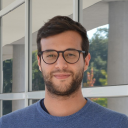
Wilson Silva
PhD student
INESC TEC and
University of Porto, Portugal
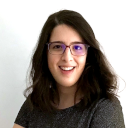
Isabel Rio-Torto
PhD student
INESC TEC and
University of Porto, Portugal

Tiago Gonçalves
PhD student
INESC TEC and
University of Porto, Portugal
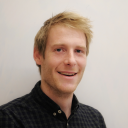
Alain Jungo
Postdoc
University of Bern
Switzerland
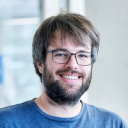
Fabian Balsiger
Postdoc
University Hospital of Bern
Switzerland
Sponsors
We are grateful for the support by our sponsors.
If you also want to support the MICCAI Hackathon,
please
contact us!
Contact
Do not hesitate to get in contact with us!




